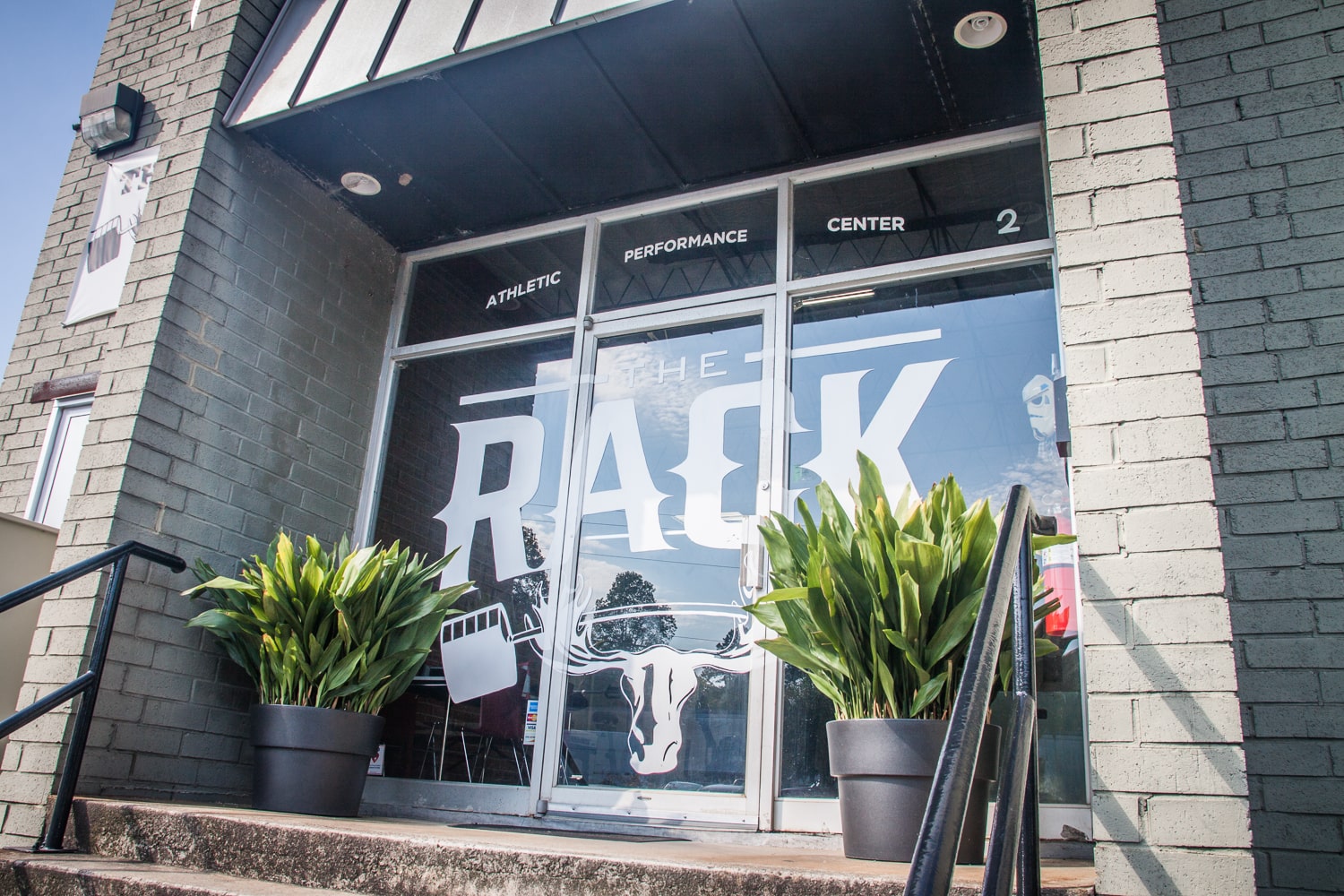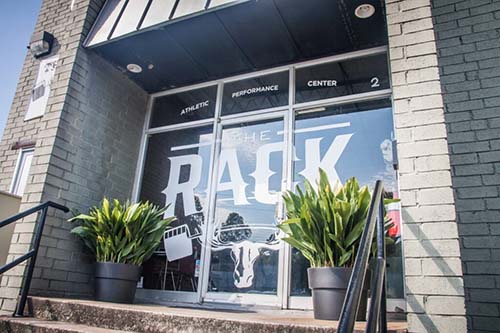Maximizing Athlete Development in Private Gyms: Key Tactics

Maximizing Athlete Development in Private Gyms is a game-changer, folks. But here’s the catch. Nailing it down isn’t as easy as shooting hoops or hitting home runs. It requires a well-rounded approach that goes beyond traditional workouts. One must consider personalized training programs, tailored nutrition plans, sports-specific exercises, and recovery techniques. This comprehensive approach is essential to train team sport athletes and individual players alike, helping them reach their peak performance and achieve their athletic goals.
You see when we talk about Athlete Development, we’re not just talking about lifting weights and running laps around the track. Nope. Maximizing Athlete Development in Private Gyms involves a multifaceted approach that encompasses various aspects of training and performance enhancement. From strength and conditioning programs to agility drills, skill development sessions, and mental conditioning, it’s about creating a holistic plan tailored to each athlete’s unique needs and goals. This comprehensive approach helps athletes improve their overall athleticism and excel in their respective sports.
We’re discussing individualized training programs, effective stress management techniques, gender-specific coaching approaches…the whole nine yards. In fact, some private gyms even create training montages dedicated to showcasing an athlete’s progress and motivating them to push their limits further. The focus is on optimizing performance, preventing injuries, and instilling a winning mindset, leaving no stone unturned in the pursuit of excellence.
Table of Contents:
- The Importance of Individualized Training for Athletes
- The Challenge with Ineffective Strength and Conditioning Programs
- Integrating Systems for Successful Athlete Development
- Managing External Stressors Athletes Experience
- Cultivating Competitive Spirit Among Team Sport Athletes
- Gender-Specific Approaches To Coaching
- Role Of Sports Scientists And Physical Preparation Specialists
- FAQs in Relation to Maximizing Athlete Development in Private Gyms
- Conclusion
The Importance of Individualized Training for Athletes
When it comes to the development process of team sport athletes, individualized training programs are a game-changer. The secret sauce? A structured approach comprising four 12-week macrocycles that have proven their mettle in developing amazing young athletes. These training programs cater to the specific needs of each player while fostering camaraderie and teamwork within the training teams, ultimately resulting in a well-rounded and highly skilled group of athletes ready to take on any challenge on the field or court.
Each macrocycle is like an intricate dance routine – beginning with an assessment period, moving onto progressive training, taking a breather during a low-stress week, and ending on a high note with testing. This tailored choreography takes into account each athlete’s unique needs while also factoring in injuries and external stressors they experience. During the team training session, coaches and trainers closely monitor the progress of all athletes, providing valuable feedback and making necessary adjustments to ensure everyone is on track to achieve their optimal performance levels.
The Role of Communication and Rapport in Training
No matter how comprehensive or well-designed your coaching strategy might be, without effective communication between coaches and athletes it can fall flat. That’s where good ol’ coaching steps up to the plate.
This involves breaking down complex concepts into digestible pieces so players understand what’s expected from them clearly. It’s about creating open lines of dialogue regarding progress or setbacks faced during training sessions – essentially fostering transparency within teams.
A culture steeped in this kind of openness encourages commitment towards personal goals as well as collective objectives – vital ingredients for success both on-field and off-field. Figure 1, although not directly linked here due to constraints provides further insights into crafting individuality within team training which could prove beneficial if you’re looking at practical ways to implement these ideas.
The Challenge with Ineffective Strength and Conditioning Programs
Generic strength and conditioning programs are often a roadblock for team sport athletes. These generic regimens don’t consider the individual requirements of each athlete, leading to suboptimal results on the playing field.
Many such programs overlook key elements like injury prevention or the development of sports-specific skills. This oversight can lead not only to an increase in injuries among athletes but also hamper their future potential.
Athletes might find themselves running laps or lifting weights without seeing any significant improvement in their gameplay because these exercises don’t replicate the movements they perform during competitions.
The Need for Professional-Level Training Secrets
In professional sports circles, elite players have access to advanced knowledge that is usually out-of-reach for those outside this exclusive group. Such insights provide a competitive edge that could be crucial between winning and losing games.
To bridge this gap between amateur training practices and pro-level secrets, initiatives like The Athlete Development Program come into play. They aim at equipping aspiring team sport athletes with top-tier training methodologies previously reserved only for professionals through private sector gyms like The Rack Athletic Performance Center.
This includes everything from innovative workout routines designed by experienced trainers including physical preparation specialists, and conditioning coaches who contribute towards maximizing athlete development creating individuality among them. It also covers scientifically-backed nutrition advice aimed at enhancing athletic performance – another aspect where sports scientists play a vital role.
Sporting organizations understand that simply providing information about effective workouts isn’t enough; it’s equally important how you implement them within your existing schedules while avoiding burnout – common pitfalls associated with self-designed fitness regimes – thus manifesting brand-new training methodologies.
Generic workout plans often fail team athletes, overlooking key elements like injury prevention and sport-specific skills. Enter professional-level training secrets – once exclusive to elite players, now accessible through initiatives like The Athlete Development Program in private gyms. These programs offer innovative workouts, nutrition advice, and effective implementation strategies for maximum athlete development.
Integrating Systems for Successful Athlete Development
The journey of an athlete isn’t merely a physical one. It’s about integrating various systems that allow athletes to subconsciously pick up skills crucial to their performance on the field.
This multi-faceted approach within private sector gyms helps in creating individuality among team sport athletes by addressing their unique needs and capabilities.
The Winning Strategy
A winning strategy extends beyond game tactics into how we approach athlete development as well. This involves combining trade secrets from professional sports with individualized training plans tailored specifically for each athlete’s strengths and weaknesses.
- Basketball Teams: NBA teams employ dedicated strength & conditioning coaches along with physiotherapists, dieticians, etc., working together under one roof. They use advanced technology tools alongside traditional coaching methods ensuring players receive the best possible care leading them toward peak performances.
- Soccer Clubs: Top-tier soccer clubs around the world follow a similar multi-disciplinary approach involving experts from different fields coming together creating personalized programs for each player based on his/her specific requirements.
Crafting Tailored Training Programs: A Closer Look at Basketball Teams And Soccer Clubs
We often see successful basketball teams or other team sport athletes excel due to such integrated approaches towards athletic development. These successes are not mere coincidences but results of meticulously planned strategies considering every aspect affecting an athlete’s performance – both internal factors like fitness levels or skill sets as well as external influences like competition pressure or personal life stressors.
Managing External Stressors Athletes Experience
Athletes, whether they’re developing amazing young athletes or seasoned professionals, are no strangers to external stressors. These can range from the physical strain of intensive training regimens in a two-hour open gym session to emotional pressures stemming from high expectations and competition intensity.
The private sector is stepping up by creating individuality among athletes and providing tailored solutions that not only enhance performance but also protect their health.
Addressing Injuries During Training
Injury management forms an integral part of any athletic program. Coaches must be adept at adjusting routines for injured players during regular training while ensuring continued physical improvements without exacerbating existing injuries.
This involves understanding the nature and extent of an athlete’s injury before tailoring workouts accordingly. For instance, if a lower-body injury occurs, the focus could shift toward upper-body strength until recovery (source).
Flexibility is key when dealing with injuries; each case is unique requiring its own set strategy. The ultimate goal is maintaining continuity in training whilst allowing ample time for healing.
Navigating Emotional Stress
- Mental Resilience Is Key:
- Besides managing physical strains, it’s equally important addressing psychological aspects too – this includes fostering positive attitudes towards setbacks, teaching relaxation techniques like deep breathing exercises or meditation, etc.
- Promoting mental resilience helps athletes better cope with adversities encountered on-field thereby enhancing overall performance levels.
- Safeguarding Mental Health:
- An environment where athletes feel safe discussing anxieties significantly reduces psychological distress – sports scientists play pivotal roles here contributing massively towards maximizing athlete development within private gyms.
- Cultivating such environments becomes even more crucial considering various external influences these individuals often face off-field which might potentially impact their performances adversely otherwise.
Cultivating Competitive Spirit Among Team Sport Athletes
No doubt, the rivalry has a great effect on sports. It fuels athletes to push beyond their limits, sharpen their skills and pursue excellence relentlessly. But how do we foster this competitive spirit among team sport athletes within a private gym like The Rack Athletic Performance Center?
In essence, these internal contests create an environment that challenges each athlete individually but also promotes unity and mutual respect.
Building Unmatched Culture Within Teams
‘Culture eats strategy’ – a saying often heard around locker rooms holds significant truth when it comes to developing amazing young athletes. A robust culture binds individuals together forming a cohesive unit where collective performance surpasses individual capabilities.
- Fostering Mutual Respect: Promoting respect for all members regardless of their role or skill level helps build trust which can significantly enhance teamwork during high-pressure situations on-field.
- Promoting Individuality: Recognizing unique strengths and talents within the group encourages diversity making teams more adaptable in different game scenarios.
- Nurturing Unity: Building strong bonds through shared experiences both inside two-hour open gym sessions or regular training fosters solidarity, crucial for maintaining morale, especially during challenging times.
The ultimate goal? To manifest brand-new training methodologies aimed not only at maximizing athletic development but nurturing an unmatched team culture as well.
Beyond physical improvements, such initiatives aim at cultivating leadership qualities along with emotional resilience – traits vital for any successful sporting endeavor. Thus by promoting competitiveness alongside camaraderie, we ensure our athletes are prepared mentally as much they are physically to face victories and setbacks alike with grace.
Gender-Specific Approaches To Coaching
When it comes to training team sport athletes, one size doesn’t fit all. Understanding the differences between coaching high school females and males is crucial for success.
Tailoring Training For Females And Males
The first step in this process? Recognizing that attention spans can vary based on gender. Research suggests that females typically have longer attention spans than their male counterparts, which allows coaches more time to teach higher brain activities such as strategy and tactics.
This isn’t overly complicated or impossible – but rather an opportunity. The key here lies in adapting your approach accordingly when you train multiple teams of different genders.
To engage male athletes during training sessions effectively, consider incorporating interactive drills or gamified learning methods – these techniques are known to improve comprehension among learners with shorter attention spans.
Moving onto physical variations: It’s no secret that there are physiological differences between males and females – factors like muscle mass distribution, flexibility levels, hormonal cycles, etc., play a significant role in athletic performance.
Awareness about these aspects helps trainers develop bespoke routines ensuring optimal results while minimizing injury risks – just what we aim for at the American College Of Sports Medicine (ACSM).
Your takeaway from this section should be clear: Acknowledging gender-specific traits leads to improved athlete development across the board.
No cookie-cutter solutions here. It’s all about recognizing individual strengths within each athlete regardless of their gender & leveraging those for maximum benefit on the field.
Role Of Sports Scientists And Physical Preparation Specialists
The private sector is a hotbed for manifesting brand-new training methodologies and creating individuality among athletes. But how does this happen? The credit goes to the trio of sports scientists, physical preparation specialists, and conditioning coaches. Their roles aren’t just confined within the boundaries of conventional coaching; they are key players in injury prevention, performance enhancement, nutrition guidance, etc.
In essence, these professionals work hand-in-hand with the coaching staff to develop tailored training programs that cater specifically to each athlete’s needs. It isn’t merely about improving strength or speed but also enhancing technique and tactical understanding which are crucial components of high-level sporting success.
Sports Scientists: Maximizing Athlete Performance
- Analyzing various aspects related to athletic performances.
- Identifying areas where improvements can be made based on data-driven strategies derived from research findings.
- Collaborating closely with other team members like coaches towards developing amazing young athletes through personalized training catering to specific requirements.
Physical Preparation Specialists: Building Athletic Resilience
FAQs in Relation to Maximizing Athlete Development in Private Gyms
How can I improve my athletic performance at the gym?
Focusing on individualized training, managing stress effectively, and incorporating a well-rounded strength and conditioning program can significantly boost your athletic performance.
What is the Ltad method?
Ltad stands for Long-Term Athlete Development. It’s a structured approach to training that focuses on continuous improvement over an extended period of time.
How can you make your athletic program contribute to positive growth and development?
An effective athletic program promotes positive growth by fostering competitiveness, building team culture, managing external stressors, and providing tailored coaching based on gender differences.
What is individualization in fitness?
In fitness, individualization refers to tailoring exercise programs according to each athlete’s unique needs, abilities, goals, and response to training stimuli.
Conclusion
A process that requires patience and dedication, Maximizing Athlete Development in Private Gyms demands a holistic approach. The individualized approach to training cannot be over-emphasized, Nor can the need for effective strength and conditioning programs. We’ve talked about how integrating systems is key to success, And managing external stressors. Crucial! Coaches and trainers work tirelessly to strike the right balance between pushing athletes to their limits and preventing burnout, all while fostering a positive and supportive training environment. This comprehensive approach ensures that athletes not only reach their peak performance but also sustain it for the long haul, becoming the best versions of themselves both on and off the field.
Cultivating a competitive spirit among athletes gives them an edge on the field. Different genders require different coaching approaches – it’s science, folks! Sports scientists and physical preparation specialists play their part too in this grand scheme of things. Whether you’re training for a big game, striving to achieve personal fitness goals, or looking for Healthy Breakfasts For Early Workouts, we’ve got you covered at Ed Miller The Rack Athletic Performance Center. Our unique approach focuses on tailoring training programs to suit individual needs, optimizing nutrition plans, and fostering a supportive training environment that propels athletes and fitness enthusiasts alike to new heights of performance and success.
Join us today at The Rack APC, a Private Gym in Atlanta, where we specialize in transforming individuals from all backgrounds into amazing athletes through our specialized training methodologies. You won’t regret it! Our experienced coaches and state-of-the-art facilities are here to help you reach your full athletic potential, whether you’re an aspiring professional or simply looking to improve your performance in your favorite sport. Come and experience the difference at The Rack APC.



